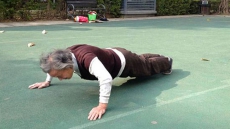The holiday season is so much fun for many people. However, for some, family get-togethers, holiday shopping, cooking and more make them feel stressed and anxious. Holiday stress is a real thing and it’s something that mental health professionals help their patients with during November and December. How can you help yourself feel better?
Vinay Saranga M.D., is a psychiatrist and founder of Saranga Comprehensive Psychiatry (www.sarangapsychiatry.com).
He offers these tips:
· Breathe: One of the best ways to reduce stress and anxiety is to slowdown your breathing. When we are stressed, overwhelmed, worried or something is bothering us, our breathing tends to get fast and shallow. This actually makes us feel worse than we are already feeling. Focus on slowing down your breathing. Breath in through the diaphragm (stomach area), hold for a few seconds, and slowly exhale through the lips.
· Mindfulness: When you start worrying about preparing Thanksgiving dinner, shopping for gifts, or uncomfortable topics of conversation coming up with family you don’t see that often, practice mindfulness. This is the act of being present and immersing yourself in the present moment. It’s easy to dwell on the past and worry about the future, but being in the present moment is the best place to focus your energy.
· Take a break: The holidays can be overwhelming for many people. It’s okay to take a break. Go for a walk. Take a drive and turn up the tunes. Hit the gym. Surf the web. Go to your favorite place and just people watch. It doesn’t matter what you do. If you feel your anxiety levels rising, take a break from what you’re doing and connect to something that makes you feel good.
· Avoid controversial issues: There’s nothing like a heated debate over things like sex, politics or religion to ruin what should be a nice family together and stress you out. If a topic feels too far out there, or if you know that people have very differing points of views, stay away from it. Focus conversations around TV shows, movies, music, books, reliving memories and other fun and interesting topics.
· Get outdoors: It’s easy to get stuck inside watching the parades and footballs games, but getting some fresh air and a little activity can be good for everyone. Think of games to play outside. Go for a bike ride or a walk around the block. Watch the kids get involved in an activity. A little fresh air can relieve stress and holiday tension.
· Comfort yourself: Whether you don’t like the family get-togethers or large gatherings just stress you out, be kind to yourself with the language you choose. Remind yourself that it’s only a few hours and you can get through it. Spend time around the people with whom you have the most in common or the ones who don’t stress you out as much. Remember to smile as this not only makes you appear to be enjoying yourself, it really will help you feel better.
· Stay on your meds and keep doctor appointments: The holidays and long family get-togethers can be tough for many people, but even more so if you are suffering with a mental health condition. The holiday season is not the time to come off your medication. Remember to keep all doctor appointments and stick to your therapeutic routine.
· Take a trip: If the holiday season really stresses you out that much, there is no shame in telling people that this year you are getting away and taking a family vacation. Going on a cruise, heading to the mountains or whatever you choose to do is perfectly acceptable. You are not being selfish by putting the needs of you and your family first and foremost.




